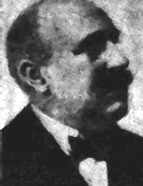

Queirós Veloso was concerned in his studies with going beyond the historiographical context which said that this period marked the start of the country's "decline". He himself did not express such a definition of the age so emphatically. He did not allow himself to be influenced by political or teleological motives nor by fin-de-siècle pessimism; instead he believed that the country's deterioration began after the death of Filipe II and the decline of Spanish political and maritime hegemony, which made Portugal vulnerable to those who opposed the Catholic monarchy. Thus, he sought to rehabilitate historically such controversial figures as D. Catarina of Austria and Cardinal D. Henrique by affirming the concern of these Portuguese historical figures with national issues at a time when the nationalizing ideal was gaining ground (História de Portugal, dir. Damião Peres, 1933).
He was a member of numerous scientific institutions among which were the Lisbon Academy of Sciences (permanent member and president of the Letters section), the Portuguese Academy of History (numbered academic and first vice-president) and the Royal Academy of History in Madrid (corresponding member). He was decorated with the Grand Cross of the Order of the Conception and the Grand Cross of the Order of Isabella the Catholic and he was also a Grand Officer of the Order of Santiago da Espada and a Grand Officer of the Order of the Southern Cross.
Works by the author : O Arquivo Geral de Simancas. Sua importância capital para a História Portuguesa, discurso inaugural da 6ª secção do Congresso de Salamanca (Ciências filosóficas, históricas e filológicas) pronunciado na sessão de 26 de Junho de 1923, separata de O Instituto, vol. 70, nº 7, Coimbra, Imprensa da Universidade, 1923; «A formação profissional dos professores liceais – simples esboço da história do ensino secundário em Portugal», Oração de Sapiência lida na sessão solene de abertura da Universidade de Lisboa no dia 20 de Novembro de 1920, separata dos nº6-7 da Labor, Aveiro, 1927; «A dominação filipina», discurso pronunciado na 4ª sessão comemorativa do 3º jubileu da Academia das Ciências de Lisboa em 12 de Dezembro de 1929, Biblos, vol. VI, Coimbra, Coimbra Editora, 1930, pp. 387-410; «O Cardeal-rei D. Henrique. Novos aspectos da sua história», Conferência realizada no curso de férias da Faculdade de Letras da Universidade de Coimbra, em 6 de Agosto de 1930, Biblos, vol. VI, Coimbra, Coimbra Editora, 1930, pp. 513-523; «Terceira Época (1557-1640) – História Política», vol. V, I parte, História de Portugal (dir, Damião Peres), Barcelos, Portucalense Editora, 1933, 9-272; «O significado histórico do 1º de Dezembro», Palestra pronunciada na sessão de 3 de Dezembro de 1935 pelo Exmo. Sr. Prof. Dr. Queirós Veloso ilustre académico e antigo professor universitário, Lisboa, Rotary Club de Lisboa, 1935; No centenário do historiador Oliveira Martins, separata da Academia das Ciências de Lisboa, vol. XVII, Lisboa, Academia das Ciências de Lisboa, 1945; Gama Barros, Coimbra, separata da Revista Portuguesa de História, tomo IV, 1949; O Interregno dos Governadores e o Reinado de D. António, Lisboa, Academia Portuguesa da História, 1953.
